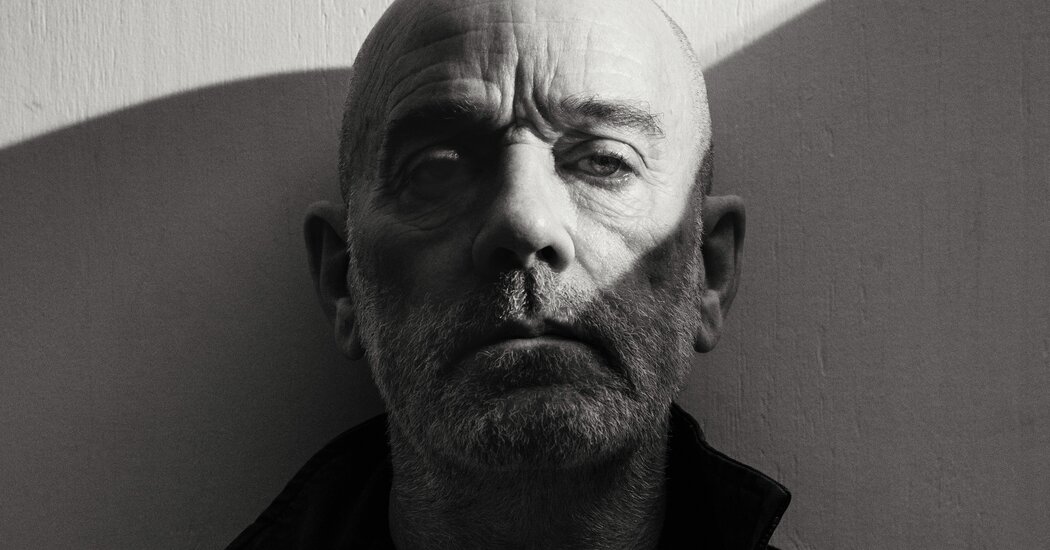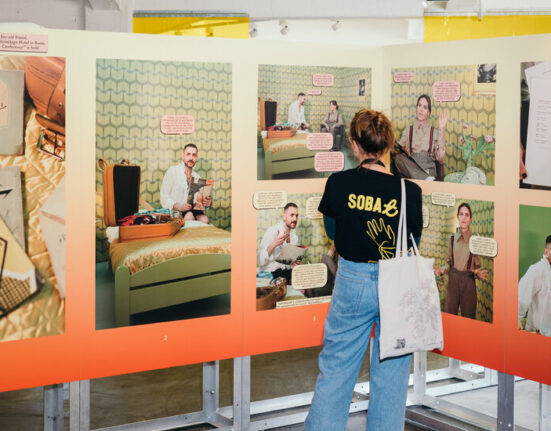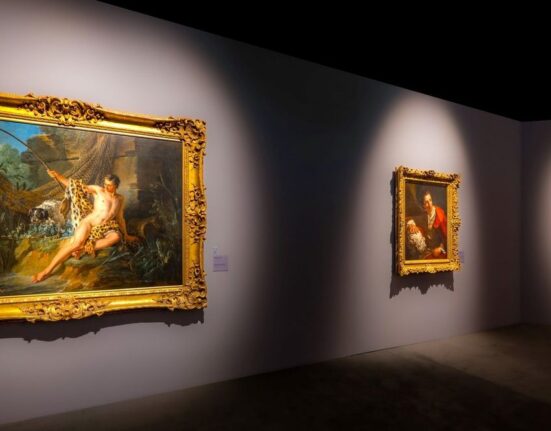Smith was recounting the story over dinner with Stipe one night in September. They were at a restaurant in Covington, Ky., just across the river from Cincinnati, where Smith had a gig the following night. Stipe had accompanied her from New York. It was Fred Smith’s birthday — he would have been 75 — and the heaviness of his loss and the delight in his memory seemed to smear together, coloring the whole night.
Watching Smith and Stipe together over the next couple of days, I found myself wishing the English language had words to capture all possible varieties of friendship, because theirs felt so specific. He doted on her, like a valet. She worried after him and took pleasure in poking a little fun. At dinner, Smith kept turning away to cough, and each time, Stipe would tactfully pass an open container of homeopathic lozenges across the table. When, during another meal, Stipe told the server: “I’m going to have the niçoise salad, but I’ll open with the buffalo mozzarella,” Smith chortled and teased: “Open with!” Then, when Smith left the room, Stipe turned to me, beaming, and said, “Isn’t she amazing?”
Smith was playing a festival in downtown Cincinnati organized and headlined by the National. For an hour, as the sun went down, she tramped around the stage in chunky black boots, mashing her pelvis into the air, into the music, while she spelled out “G-L-O-R-I-A.” And the whole time she was out there, being Patti Smith, Stipe watched from the side of the stage, in a “PATTI SMITH LOCAL CREW” T-shirt, being the world’s most energetic Patti Smith fan: snapping pictures, crossing and recrossing his arms as he bounded around to take her in from every possible angle. Later in the night, Smith reappeared to sing a song with the National but lost her grasp on the melody and timing momentarily. Walking off, she seemed slightly shellshocked, sapped of her superpowers, like a 76-year-old person for the first time all night. Stipe stepped forward to offer her a bottle of water. Smith whispered something to him, and he laughed, and there in the wings, washed in music, with the edges of the National’s stage lighting splashing over them, they stood still and hugged for a very long time.
The National had asked Stipe to perform a song with them too. But Stipe declined. He didn’t feel great in his body, he told me — he was 15 pounds too heavy, he said — and didn’t want to be photographed onstage. Stipe had been one of the National’s musical heroes since they were young; The National’s bassist, Scott Devendorf, told me that, as kids from Ohio, they found it empowering that R.E.M. was from Georgia and not New York or Los Angeles. Then, in 2008, the National opened for R.E.M. on what was ultimately the band’s final tour. They befriended Stipe and benefited from his guidance. (The National’s singer, Matt Berninger, has described the album his band made after that tour as “us following all of Michael’s advice.”) Aaron Dessner of the National told me, “I try not to be a fan, because we’re friends.” But Dessner loves Stipe’s voice so much, he said, that sometimes just listening to a voice memo from Stipe makes him have to go listen to a bunch of R.E.M.







